The recent EUSDR Annual Forum, held on 20-21 June, 2023, in Vienna under the Austrian presidency, featured a significant parallel session titled “Navigating Nature’s Extremes: Understanding the Dynamics of Floods and Droughts.” Organized by me on behalf of EUSDR Environmental Risks Priority Area as the Hungarian coordinator with the involvement of experts from Boku, ICPDR, IIASA, World Bank and the General Directorate of Water Management, Hungary. The session highlighted the critical importance of proactive management of environmental risks within the Danube River Basin.
Moderated by László Balatonyi, coordinator of EUSDR Priority Area 5 – Environmental Risks, the session brought together esteemed experts who emphasized that climate change is no longer a question but a reality we must address. They highlighted the need for comprehensive strategies and funding opportunities to mitigate its impact on the water cycle, stressing the importance of action at individual, municipal, national, and basin levels. The discussion also underscored the significance of the 2019 Action Plan revision in implementing effective measures against climate change, particularly in managing environmental risks.
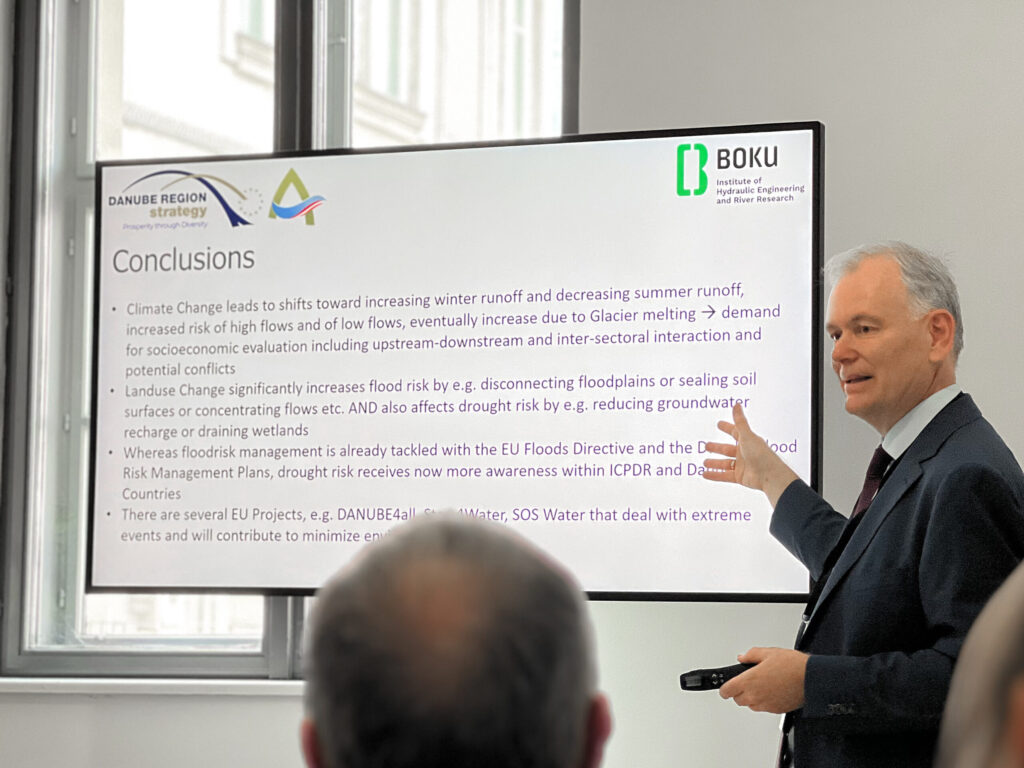
Helmut Habersack, Head of the Institute of Hydraulic Engineering and River Research at BOKU, provided a comprehensive overview of the changing dynamics of floods and droughts in the Danube River Basin. He emphasized that climate change is leading to increased intensity of rainfall, shifts towards higher winter runoff, and reduced summer runoff, which heighten the risks of both high and low flows along the river. Furthermore, he pointed out that land use changes have exacerbated flood risks by disconnecting floodplains, with a significant reduction in the Danube’s floodplains by 70-80%.
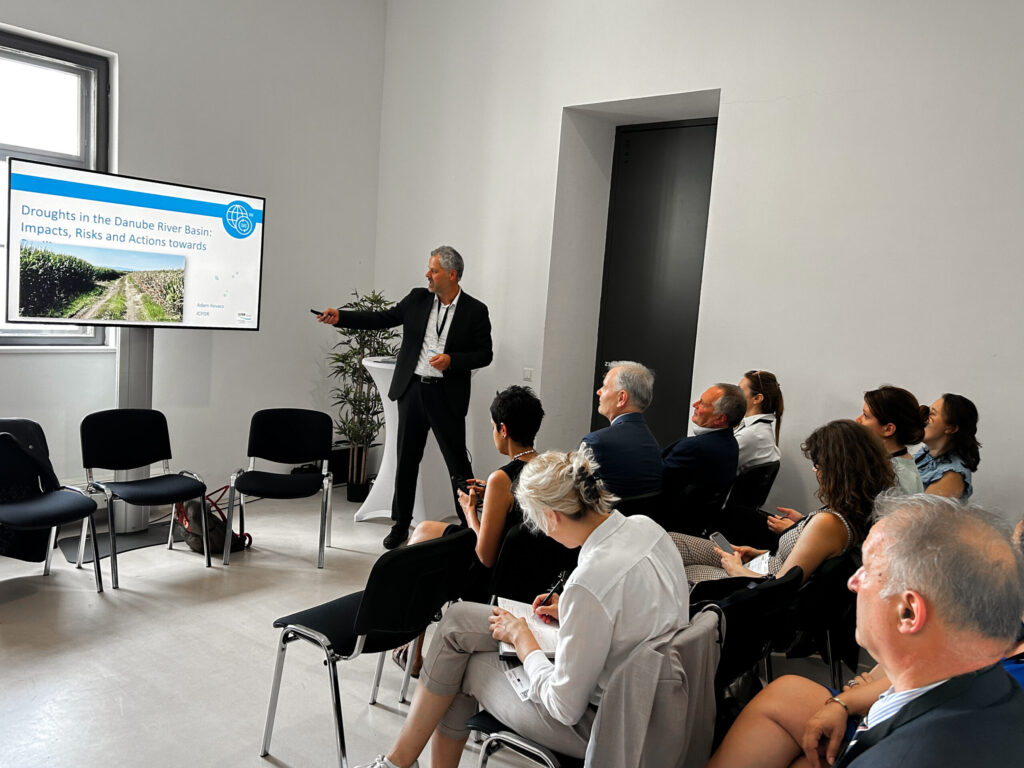
Ádam Kovács from the ICPDR presented an overview report on drought and low water levels, highlighting the increasing duration, frequency, and magnitude of droughts in the Danube River Basin. He stressed that drought risks threaten crop yields, hydropower, and water supply, with many current policies being reactive rather than proactive.
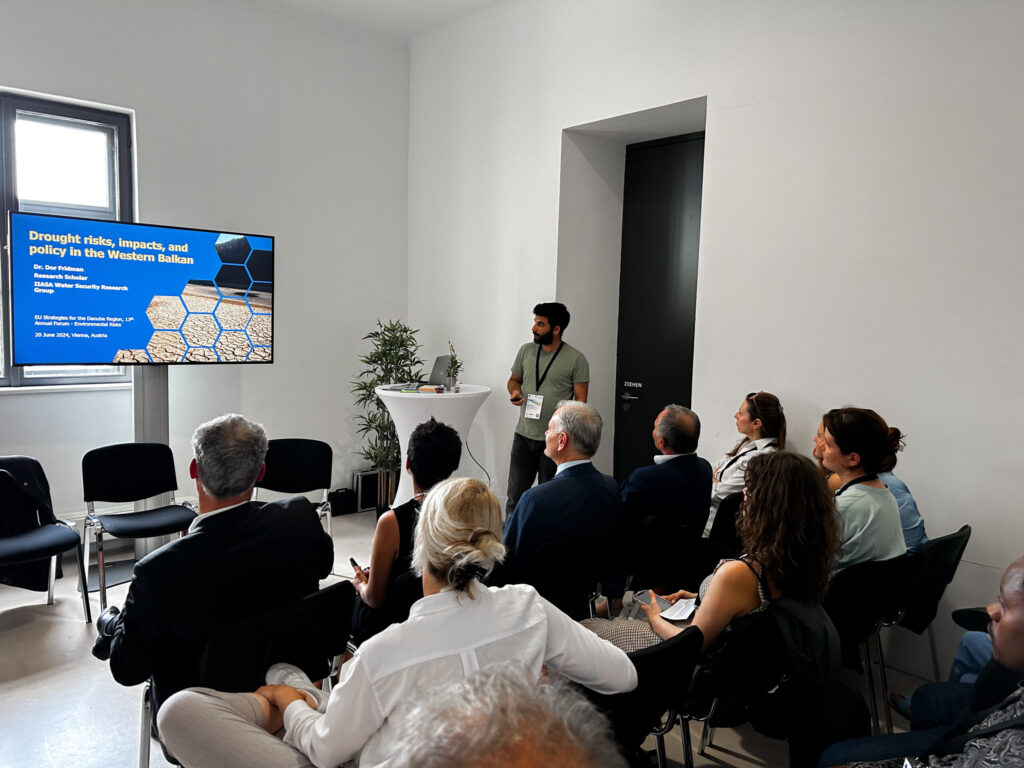
Dor Fridman from IIASA discussed the heightened vulnerability of the Western Balkans to droughts compared to the rest of Europe. He recommended reducing water loss, enhancing irrigation efficiency, restoring and modernizing irrigation systems, diversifying electricity generation systems, and strengthening institutional capacities.

Megha Mukim, Senior Urban Economist at the World Bank, demonstrated how the effects of floods can compound and cascade the risks of other natural-disaster and environmental shocks and stressors, including but not limited to droughts, wildfires, landslides etc. She also highlighted that the burden often fell on already vulnerable population, not only because they were disproportionately affected, but also because they were least well able to mitigate the effects.
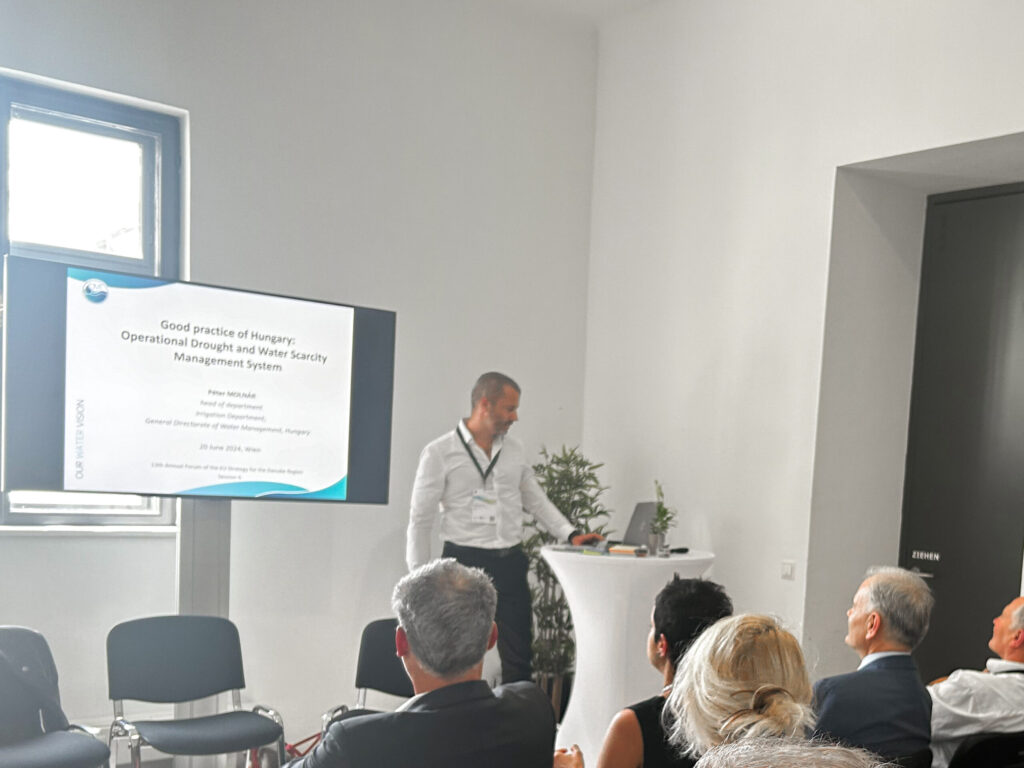
Péter Molnár from the General Directorate of Water Management in Hungary shared insights into Hungary’s Operational Drought and Water Scarcity Management System, including the use of the Hungarian Drought Index to manage and mitigate drought impacts effectively.
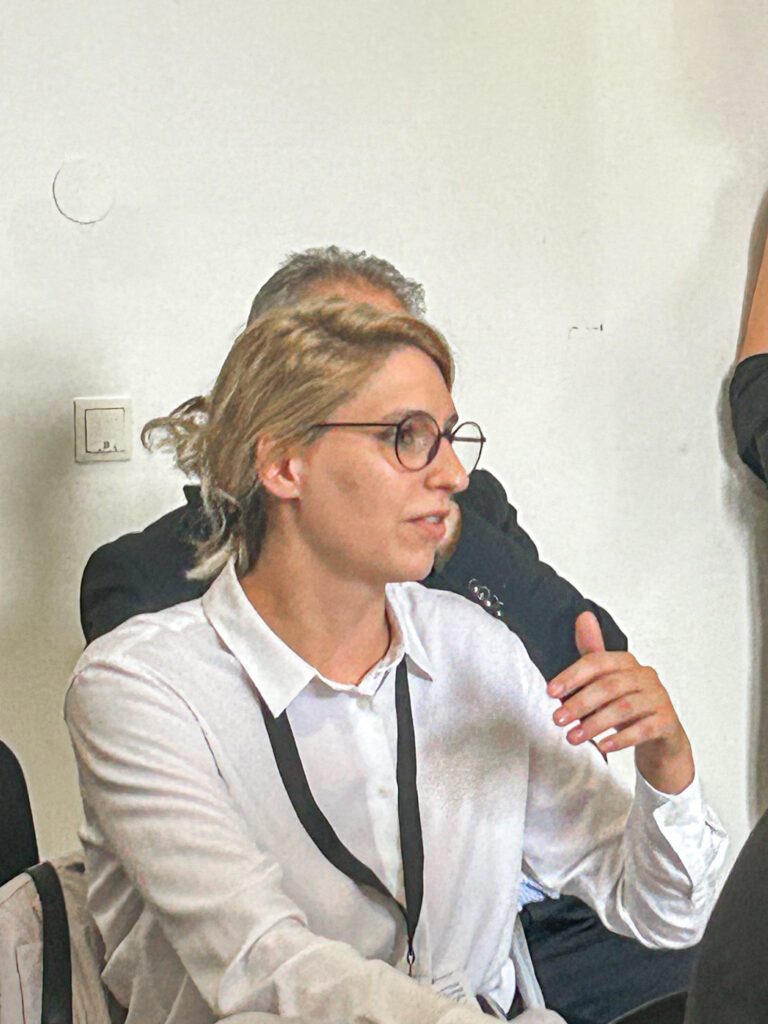
The session concluded with an open round table discussion, involving all panelists and audience members. This collaborative dialogue emphasized the necessity for integrated and proactive management strategies to mitigate the impacts of floods and droughts, fostering resilience in the Danube River Basin. Participants underscored the importance of recognizing the unique vulnerabilities and critical roles of urban areas in environmental risk management. Additionally, they highlighted the need to develop effective strategies for implementing existing policy documents, ensuring that these policies translate into actionable and impactful measures. The discussion also called for the integration of successful practices and pilot projects into standard procedures, transforming them into new common practices that enhance the overall resilience of the region to environmental challenges.
Conclusion:
The session underscored the urgency of shifting from reactive to proactive approaches in managing environmental risks. By fostering knowledge sharing, improving data utilization, and implementing comprehensive management strategies, the Danube region can enhance its resilience to the increasing threats of floods and droughts. The insights and best practices shared during the session provide a roadmap for future actions and collaborations.





